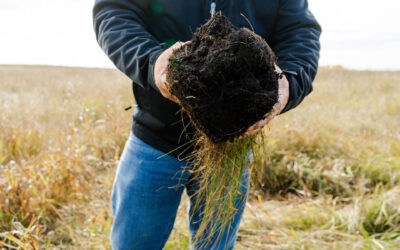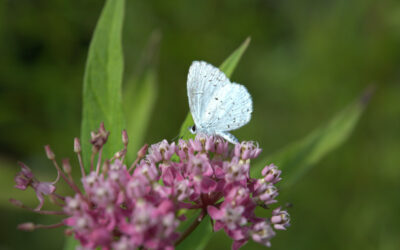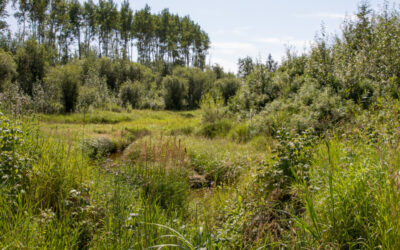ALUS shows students how—and why—to collect native wildflower seed in their communities.
Did you know that native Canadian oak trees provide habitat for the caterpillars of over 500 different butterfly species, while non-native trees, like Norway Maple, can support only a handful?
“At ALUS, we invest in biodiversity. We create diverse habitats that support a wide variety of plants and wildlife, including pollinators,” said ALUS Elgin Program Coordinator, Alyssa Cousineau.
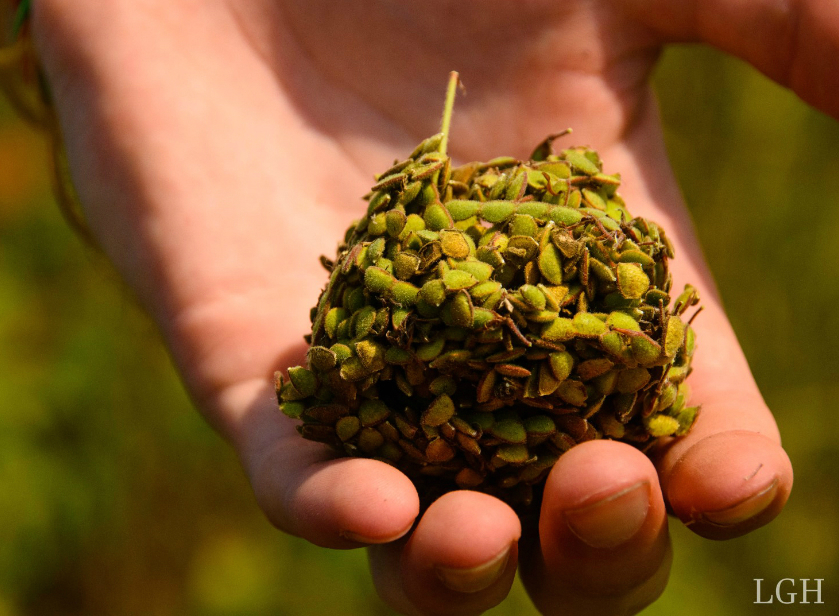
You don’t need to work very hard to gather showy tick trefoil! Its sticky seed will cling to your clothes as you walk by, as local students found out while collecting native wildflower seed in ALUS projects belonging to ALUS Norfolk participants Steve and Anita Buehner. Photo: Leanne Gauthier-Helmer
There’s no comparison: Native plants are far and away the best species to use in ALUS habitat projects. And the best thing is: it’s easy to collect mature seeds from many native plants, such as brown-eyed Susan, butterfly milkweed and Indian grass, and multiply these beauties for free.
Two ALUS communities in Ontario are showing the next generation how to do just that.
On a sunny day last August, ALUS Norfolk gathered summer students from the Norfolk Environmental Stewardship Team, as well as Norfolk PAC members and participants, to collect native wildflower seed in their community.
They learned about seed collection from Leanne Gauthier-Helmer, a local naturalist, and then harvested the seed of different plant species grown on nearby ALUS projects.
They found ripe seed of brown-eyed Susan and showy tick trefoil at Bonnieheath Estate Lavender and Winery, where ALUS Norfolk participants Steve and Anita Buehner maintain more than 12 acres of diverse native tallgrass prairie, in addition to several other ALUS projects.
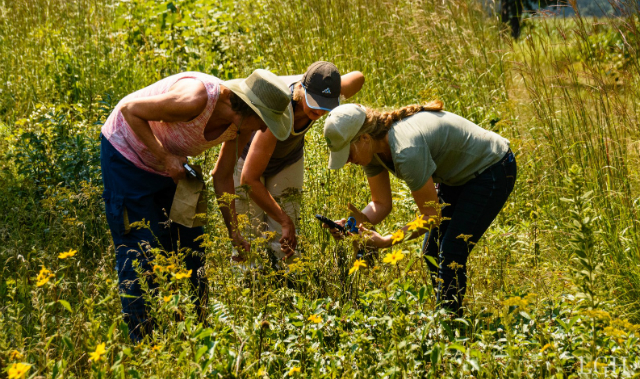
ALUS Norfolk participant Angelle Van Kleef (left), helps workshop participants collect seed from her 12 acre native tallgrass prairie site. Photo: Leanne Gauthier-Helmer
The group collected milkweed seed from another beautiful tallgrass prairie ALUS project nearby, located at Colourful Gardens Ltd, a horticultural greenhouse operation owned by ALUS participants Clen and Angelle Van Kleef. Angelle was on hand to help the students identify butterfly milkweed and common milkweed seed pods and collect them.
On a brisk November day a few months later, ALUS Elgin hosted their own native seed collection workshop for 28 students from the East Elgin Environmental Leadership program.
First, Cousineau explained how ALUS uses native plants for its habitat projects, then a renowned local naturalist, Mary Gartshore, instructed the students on seed collection and processing. Class dismissed, they all headed out to an ALUS project for hands-on experience collecting wild seed.
ALUS participant Stephen Hotchkiss welcomed the group to his 300-acre farm, where 40 acres have been converted to various types of ALUS projects. The students roamed a one-acre pollinator habitat project, carefully collecting seed from a range of native prairie and wildflower plants, such as big bluestem grass, Indian grass, brown-eyed Susan, hoary vervain and mikweed.
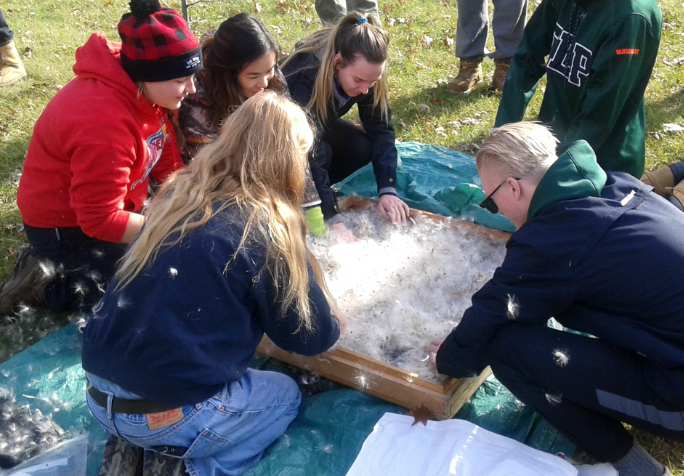
Students work to separate small milkweed seeds from the fluff surrounding them during a seed-collection workshop at ALUS Elgin participant Stephen Hotchkiss’ farm.
The seed collected during these student workshops will be used by ALUS Elgin and ALUS Norfolk to maintain species diversity throughout their ALUS projects.
“Native plants provide almost everything wildlife needs—good-quality food, forage, nesting, bedding and shelter,” said Cousineau. By collecting and planting native species in our restoration projects, ALUS is helping to establish more diverse ecosystems.”
And by teaching the next generation how to play a role, ALUS is quite literally sowing the seeds of conservation in Canadian communities.
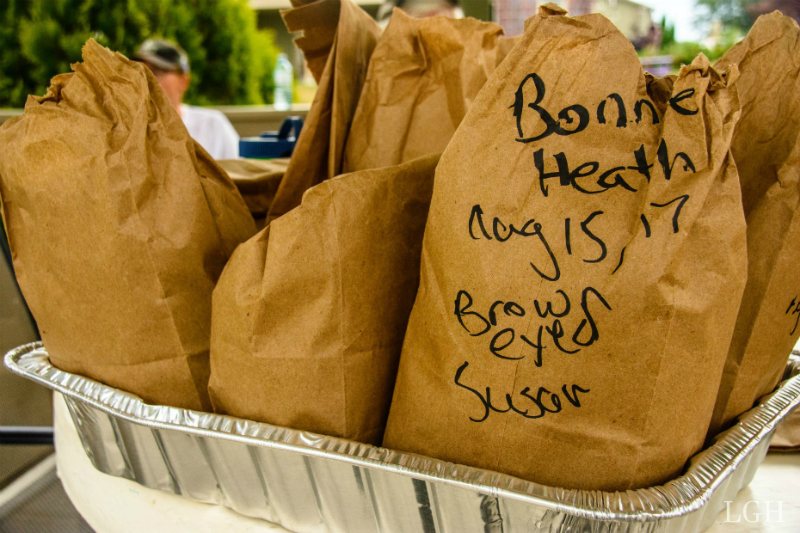
Bounty from a day of seed-collection. Next step: volunteers will clean the seed by hand, removing petals, stems and other chaff. The seed collected during these student workshops will be used by ALUS Elgin and ALUS Norfolk to maintain species diversity throughout their ALUS projects. Photo: Leanne Gauthier-Helmer

